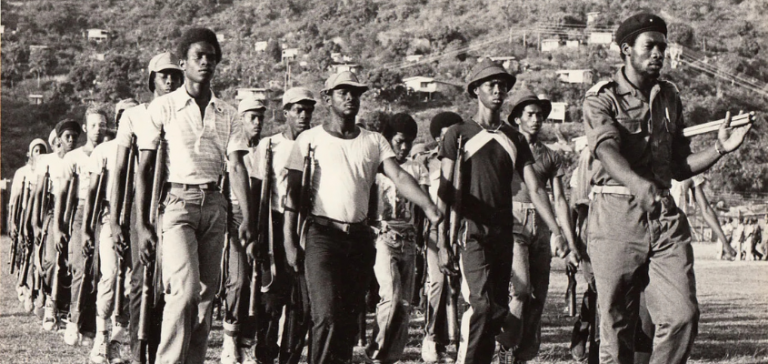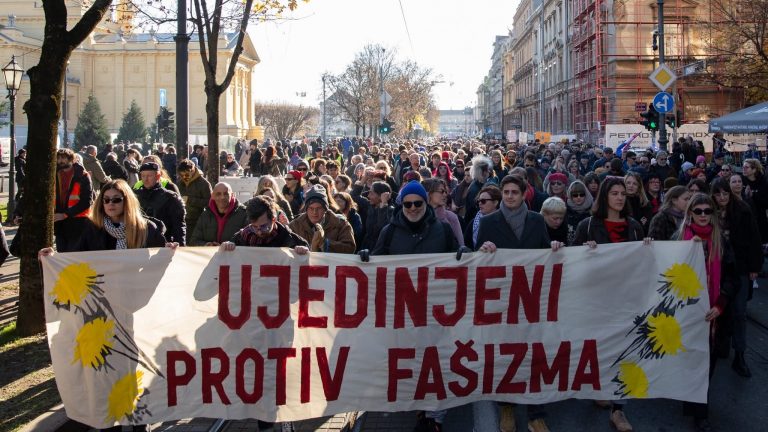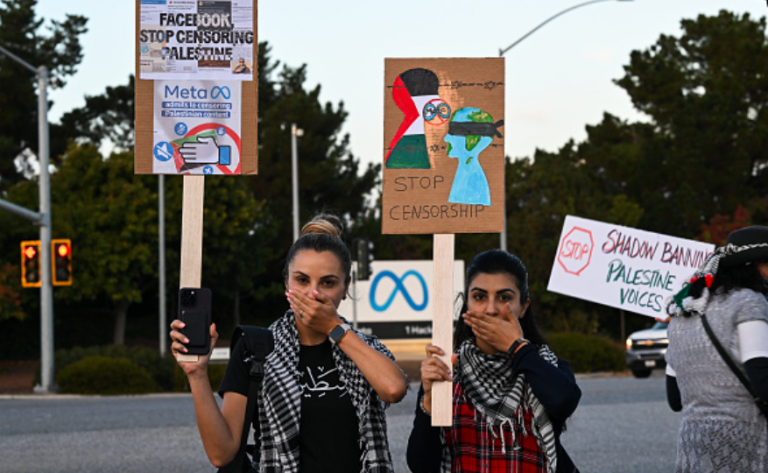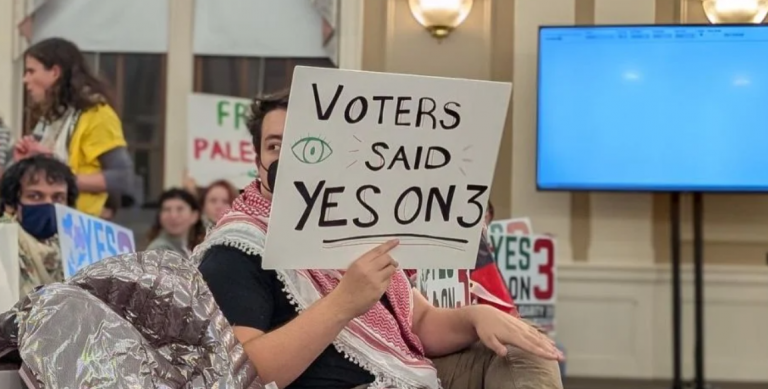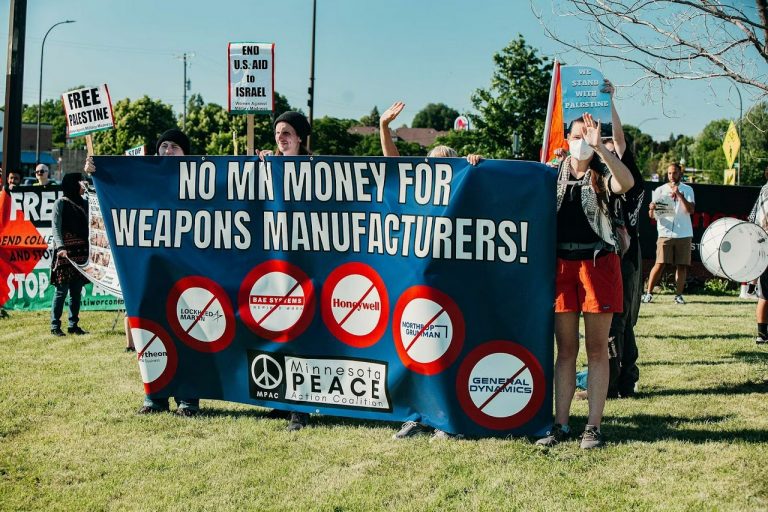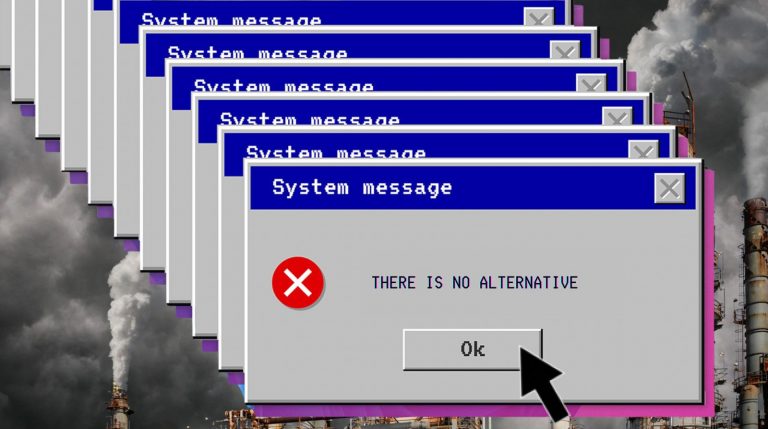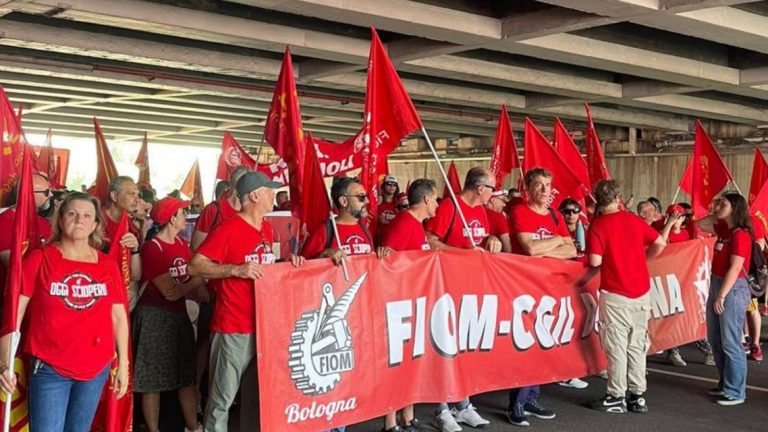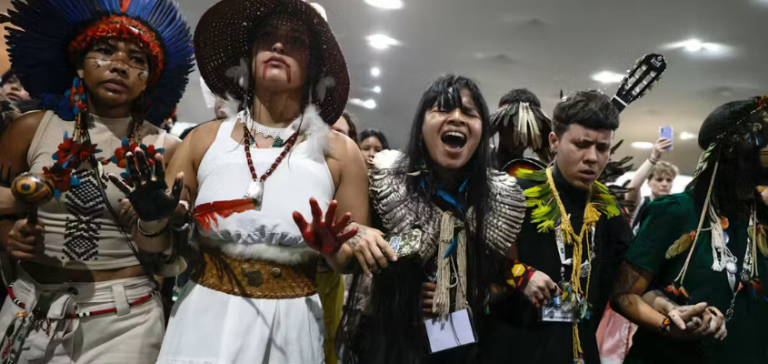Strategize!
![]() The section provides articles on strategy to assist you in making your campaigns more effective. They include case studies of social movements and information about the current resistance environment. Visit the Resources Page for links to organizations that provide both online and in-person training on strategy and tools for designing and evaluating your campaigns and actions.
The section provides articles on strategy to assist you in making your campaigns more effective. They include case studies of social movements and information about the current resistance environment. Visit the Resources Page for links to organizations that provide both online and in-person training on strategy and tools for designing and evaluating your campaigns and actions.
How does change actually happen?
This question has followed me across every chapter of my life, from political science and philosophy studies, to graduate work in peacebuilding, into law and food policy, and now into conversations about the polycrisis and metacrisis. Across these settings, I have worked at many scales, always searching for where transformation truly takes root.
In the first essay in this series, I explored how food and place reveal the limits of our political binaries. In the second, I examined resistance as an expression of kinship rather than opposition.
Why A Caribbean Zone Of Radical Peace Is Vital
December 3, 2025
Keston Perry, Black Agenda Report.
Strategize!
Caribbean, CARICOM, Solidarity, US Imperialism, Working Class
The Caribbean Sea has once again become a theater for the renewed geopolitical ambitions of a waning US empire, which is strategizing to bolster its last bastion of hegemony. The arrival of the nuclear-equipped USS Gerald R. Ford on November 15, 2025—the largest and most advanced aircraft carrier, spearheading the most intense military deployment in the region in decades- signals a stark attempt to reaffirm US domination. It reminds us of the Caribbean’s central position in the history of empires and why our only option is to resist these machinations through the pursuit of a radical peace and working-class unity.
Why Can’t We Commit War Crimes And Destroy The Planet…
December 3, 2025
Lee Camp, Substack.
Strategize!
Austerity, Economic Security, Pentagon Budget, Wars and Militarism
Sometimes it doesn’t seem like two things are connected. But deep down you know they are. You try to grasp the correlation, but it’s elusive. …I think I’ve found the answer.
Why can’t we, the United States, regularly blow up fishermen off the coast of Venezuela — without a judge, jury, or relevant jurisdiction — without 49% of American children languishing in or near poverty??
Why can’t we send tens of billions of dollars to help Israel commit genocide while also having affordable housing for Americans? Rather than the monthly mortgage payment on a typical home doubling since January 2020?
Broad Antifascist Front Confronts Far-Right Violence In Croatia
December 3, 2025
Ana Vracar, People's Dispatch.
Strategize!
Croatia, Far Right Violence, Fascism, Mass Action
Tens of thousands of people in four Croatian cities took to the streets on Sunday, November 30, responding to a call from the initiative United Against Fascism (Ujedinjeni protiv fašizma), a broad coalition of civil society organizations and grassroots groups. Marchers in Zagreb, Rijeka, Zadar, and Pula denounced the escalating wave of far-right violence and historical revisionism, vowing to build broad resistance to trends that are encouraged and supported by the political establishment.
“We stand united against fascism because, day after day, we are not witnessing isolated outbursts, but the emergence of a blueprint – one that grows when we remain silent, gains strength when we tolerate it, and ultimately turns fear into the rule rather than the exception,” United Against Fascism declared in its call.
How The Pro-Palestine Movement Is Outsmarting The Algorithms
December 3, 2025
Farah Awadallah, Waging Nonviolence.
Strategize!
Algorithms, Palestine, Repression, Social Media
For Nour Omar, a student in Cairo with 5,000 Instagram followers, reposting news about the genocide in Gaza is the smallest thing she can do that still feels like something. Usually, her posts draw hundreds of views an hour.
On a Tuesday night in November 2023, a few weeks after an Israeli airstrike on Al-Ahli Hospital in Gaza City killed at least 471 Palestinians, she posted three Instagram Stories in a row: a slide naming the dead from the hospital attack, a 12-second Reel of rooftops sheared open and a hospital donation link tagged #CeasefireNow.
Gaza Reveals How Britain Is Run
December 2, 2025
Mark Curtis and Laura Pidcock, Consortium News.
Strategize!
Britain, Gaza, Genocide, Human Rights, United Kingdom (UK)
British history. Its political system has utterly failed to confront a genocide.
Rather, that system has allowed the British establishment to be complicit in one of the worst horrors of our time — Israel’s two-year offensive against Palestinians, complete with ethnic cleansing, systematic attacks on schools and hospitals, and crimes against humanity.
Now, under a current supposed ceasefire, Israel is still killing Palestinians and their plight in Gaza remains dire, as the world sees the extent of the mass destruction visited on them.
Throughout the attacks on Palestinians in Gaza, British leaders have actively cooperated with Israel in their military, trade and diplomatic policies.
How Somerville Organized To Win Ballot Question To Divest From Israel
December 2, 2025
Tamar Sarai, Next City.
Strategize!
BDS Movement, Direct Democracy, Divestment, Massachusetts, Palestine
Organizers with Somerville for Palestine hosted a rally outside of City Hall on Nov. 13, demanding that city councilmembers follow the will of voters and pass a resolution to implement a strategy to boycott and divest from Israel within the next calendar year. The rally came after voters in the Massachusetts city’s Nov. 4 election overwhelmingly supported nonbinding Ballot Question 3, also referred to as the “Palestine Solidarity Question,” which asked whether Somerville should divest from companies that “engage in business that sustains Israel’s apartheid, genocide and illegal occupation of Palestine.”
The Spirit Of Chavismo: Why Trump Must Not Invade Venezuela
December 1, 2025
Peter McLaren, LA Progressive.
Strategize!
Bolivarian Revolution, Paulo Freire, US military, Venezuela
In his excellent and provocative article, Roger D. Harris posed the following question in a recent edition of LA Progressive: Will the U.S. Attack Venezuela? His essay served as a warning, a fiery herald no eye could ignore.
I do not rise to echo that caution across the void; I come to bear witness, a sentinel tracing its contours through time. I write from the memory of a land that invited me to bring a Freirean-style pedagogy to various sectors of the country, a los bosques, campos, tierras de cultivo y barrios de Venezuela.
40-Year Fight Against Cluster Bombs; Lessons To Stop US-Israel Weapons Pipeline
November 30, 2025
Joseph Mogul, NationofChange.
Strategize!
Anti-war Movement, Cluster Bombs, History, Israel, Palestine, Protests
After more than two years of Israel’s genocide in Gaza, popular outrage has mounted against the weapons manufacturers enabling the slaughter. The antiwar movement in the United States has begun targeting local nodes of the weapons supply chain in cities from Oakland to Brooklyn and Boston. These campaigns have deployed a breadth of strategies: pressuring local municipalities to divest, physically disrupting the supply chain through direct action, encouraging airports to adopt arms embargo policies and demanding public and private industrial landlords evict weapons companies.
Santa Fe’s Plan For A Real Minimum Wage Offers Lessons For California
November 29, 2025
Mark Kreidler, Scheer Post.
Strategize!
California, Cost of living, Housing, Minimum Wage, New Mexico
California has in recent years turned up its effort to establish minimum wages that allow workers to afford life in the Golden State. But the most daring experiment may well be coming not from particularly high-cost Los Angeles or San Francisco, but from a couple of states east.
On Nov. 13, the City Council in Santa Fe, New Mexico, voted to integrate the cost of housing in its calculation of the citywide minimum wage going forward. According to the UC Berkeley Labor Center, this marks the first time in the U.S. that a city has factored local housing costs directly into setting its minimum.
Communism Defeated Fascism Eighty Years Ago
November 28, 2025
Vijay Prashad, Tricontinental Institute for Social Research.
Strategize!
China, Communism, Fascism, History, Russia
On 13 November, at the Global South Academic Forum in Shanghai, China, we released our latest study, The 80th Anniversary of the Victory in the World Anti-Fascist War – Understanding Who Saved Humanity: A Restorationist History. An edited version of my keynote speech ‘Two Lies and an Enormous Truth’, delivered to introduce the study, is reproduced here.
In early August 1942, the Soviets set up loudspeakers across Leningrad. The city had been under siege for over 300 days. People were starving. The conductor, Karl Eliasberg, kept the Leningrad Radio Orchestra going by holding rehearsals and personally taking his musicians to feeding stations.
Lessons For Climate Advocates From Bill Gates ‘Climate Hack’
Many were frustrated, justifiably, by Bill Gates’ ability to steal headlines ahead of this year’s just-concluded round of U.N. climate talks, COP30. Gates did so by telling the climate community, on his blog, what he believes is a ‘hard truth’: that we are ‘diverting resources from the most effective things that should be done to to improve life in a warming world,’ notably fighting poverty and disease, including by boosting economic growth. By focusing on limiting the rise in average global temperatures as the sole metric of success, climate advocates are missing opportunities to ‘prevent suffering, particularly for those in the toughest conditions who live in the world’s poorest countries.’
Camera System Feeds Information To Police On Drivers Nationwide
The United States public has been treated to round after round of revelations disclosing that our actions — public and private, digital and physical, criminalized and legal — are tracked and surveilled in a bevy of ways. New realms of egregious privacy violations and excesses continue to be regularly broached by corporations and police. One of the most concerning contemporary cases is that of the AI-enabled security camera start-up Flock Safety, which, by surveilling enormous expanses of public terrain and facilitating the tracking of innocent individuals, is both testing the limits of warrantless dragnet surveillance and indulging in extremes of vacuous start-up hype and negligent absurdity.
Historic Win For Italy’s Metal Workers
Last week Italy’s metal workers secured a major victory as the unions Fim, Fiom and Uilm, all affiliated to IndustriALL Global Union, signed the renewed National Collective Labour Agreement (NCLA) with Federmeccanica and Assistal after four days of continuous and intense negotiations. The agreement covers more than 1.5 million workers across the country and guarantees a €205(US$ 237.17) increase on minimum contractual salaries over four years, which the unions say is essential to protecting wages amid rising living costs and economic uncertainty.
Theme From The Bottom: Post COP30 Reflections
November 26, 2025
Anthony Karefa Rogers-Wright, Black Agenda Report.
Strategize!
climate crisis, COP30, Decolonization, Indigenous Peoples, People's Summit, White Supremacy
The first Conference of the Parties (COP) summit I attended was back in 2015, COP 21, which took place in Paris, France. At this point in my climate and environmental justice journey I was wide-eyed and perhaps even a bit naive as I believed that nation states, international bodies like the United Nations, and so-called Civil Society Organizations contained the requisite mettle and principles to take on the crisis of climate change at scale while and the root causes that maintain and exacerbate it - white “supremacy” ideology, patriarchy, and colonization - contemporaneously.


